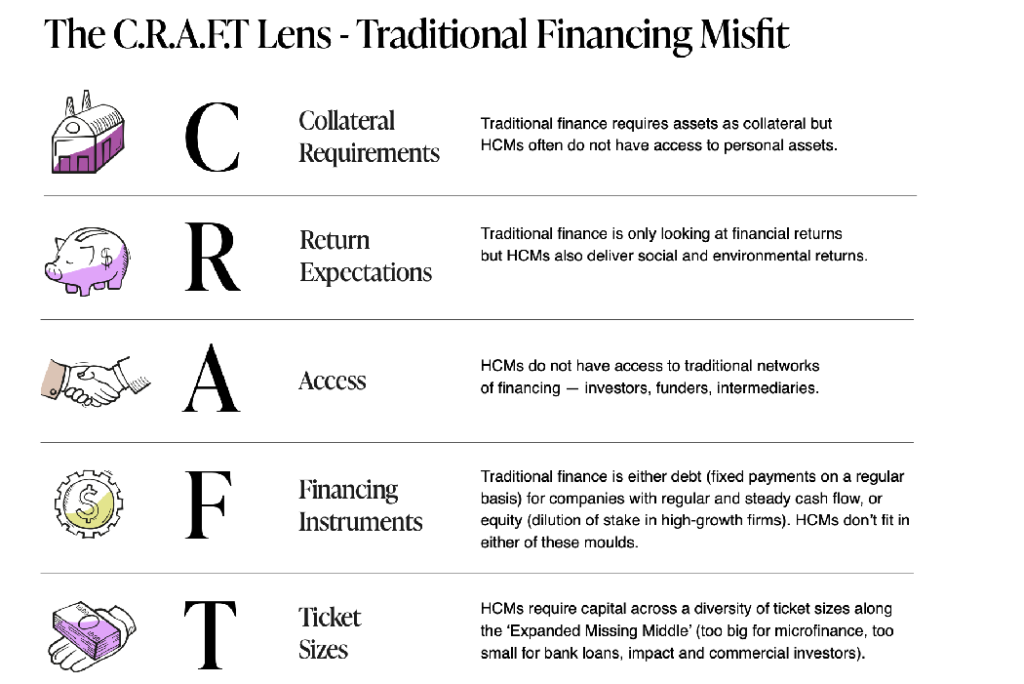200 Million Artisans is an impact-first, ecosystem enabler supporting India’s craft-led enterprises to become global powerhouses of inclusive and green production. Over the past couple of years, TSIC has been fortunate to be the research partner of a project, funded by The Catalytic Capital Consortium (C3), to understand the needs and challenges of handmade, craft-led MSMEs (HCMs) in India when accessing finance and investment.
The research report can be found here.
TSIC has long seen the potential of the creative and cultural economy to contribute to the Sustainable Development Goals (SDGs). For example, in our latest evaluations for British Council on Tunisia’s Tfanen and Crafting Futures. However, this has not been much of a focus by impact investors. As a blog from Creativity Culture and Capital cited, “In 2020, arts & culture was reported as representing only 0.1 per cent of assets under management, with allocations from only 9 per cent of respondents.” Therefore, it was a great opportunity for us to collaborate with 200 Million Artisans to conduct a deep-dive into craft-led enterprises, which have sizeable economic impact, as well as outsized influence on women’s empowerment and climate change.
We greatly enjoyed working on the report, in collaboration with the talented all-female team, all from the Global Majority. We contributed to case studies, particularly from a global level, and helped break down the understanding of capital types (working capital, growth capital, startup and innovation capital). In order to demystify finance for our target audience of HCMs, we also co-convened a few Webinars, getting impact investors to share their financing offerings and bridging the gap of understanding between supply side and demand side.

What jumped out to us during the process was the inaccessibility of the investment jargon to entrepreneurs. As an attempt to create more accessible, memorable frameworks, we created “The C.R.A.F.T Lens”, to articulate how the traditional financing misfit impact the craft-led sector.

In November, we joined the C3 Convening on the fringes of Global Impact Investing Forum (GIIN), as part of the projects being funded. It was great to learn about all other projects attempting to strengthen the evidence base for catalytic capital. It is clear that there is a need for catalytic capital, particularly informed by the needs of the enterprises, as our report sought to show. An area of particular interest to us is the use of innovative financing instruments, such as revenue-based financing and redeemable equity.

We look forward to continuous collaboration with 200 Million Artisans to take the fruits of the research forward.